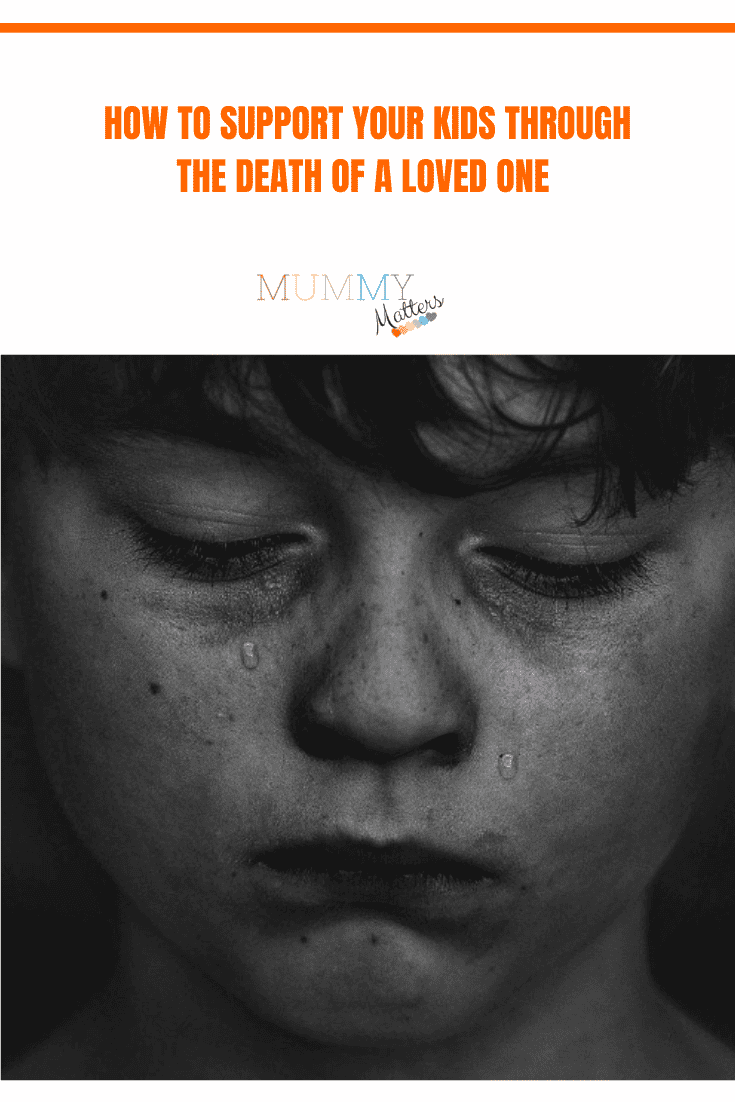Death is an inherent aspect of life, yet it presents a significant challenge, especially when confronting the death of a loved one.
Grown-ups frequently grapple with the complexities of handling loss, and it is only natural that children, too, will face difficulties when dealing with the daunting experience of losing someone they were close to or even saying goodbye to a cherished pet.

If your children have just encountered death, you must be sympathetic and support them through grieving.
When a loved one dies, it is difficult for the entire family. The death of a pet can be just as hard as the death of a person, especially for children who haven’t experienced loss before. You can use many pet memorial ideas to help your kids through the death of a beloved pet.
To help, we’ve put together a list of tips to make it easier for you to communicate with your kids and make them feel reassured during this difficult time.
Learn About The Grieving Process
Grief and loss can be a long process with many different stages. The first step towards helping your child through their loss is understanding how it affects them. Learn about the stages of grief and try to identify them in your child so that you know how to support them through this tough experience.
Manage Your Own Grief

As a parent, you need to make sure that you manage your grief and don’t allow it to affect your treatment of your child. If you lash out or become despondent, your child will pick up on these changes and might feel worse themselves. As such, you shouldn’t neglect your mental health and set a good example for your child by managing your grief responsibly and healthily.
Work With A Supportive Funeral Director
When you attend the funeral with your child, you want to make sure that they receive personal support and can ask questions of the funeral director. A great example of this in practice can be seen through Lilies Funeral Directors, who are funeral directors in Sutton Coldfield who provide extra support to families to help them achieve closure. They do this by having a private chapel of rest that can be used anytime and providing families with one point of contact who will speak to them throughout the journey.
If you visit the chapel with your children, they can ask the dedicated funeral director any questions they have that you may not be able to answer. If you use a professional and supportive service like this, you’ll find that the typical stresses of organising the service will be somewhat eased.
Avoid Lying To Your Children
It’s always tempting to lie and spare your children from the hurt of death, but you should try not to lie to them if possible. Even young children will benefit from being talked to about death, so try to find a way to make them understand the concept that doesn’t involve outright lying. Children need to learn about death eventually, and if you lie to them early on, they will distrust you later.
The more they understand, the more they will be able to cope with death in their own time. It’s tough, but it’s important to help them through their grieving process. Many people in these situations like to check these legacy memorials to help them keep their loved ones close to their hearts. These can be a great way for children to feel connected to the person or pet they have lost.
Explain The Situation In A Way That They Can Understand
Death and the grieving process are complicated concepts, so you must talk to your child on their level. Learn to communicate with children of any age so that you can discuss death and grief in a way they will understand. Try not to patronise your child; instead, alter your language to suit their age and understanding. If you have several children of different ages, consider talking to them separately to make them feel supported and help them understand death.
If They’re Really Struggling, Then Seek Help
Some children find death a real challenge, particularly if the person who is gone is someone they were close to, so if your child displays signs of serious upset, consider working with a professional. Many child psychologists and therapists specialise in helping children overcome grief to return to a happy future despite this setback.


